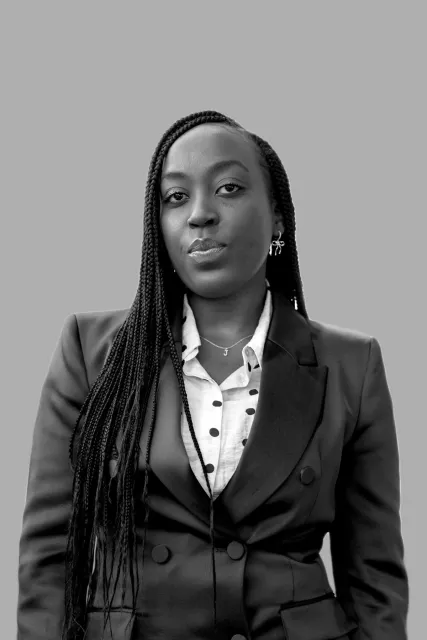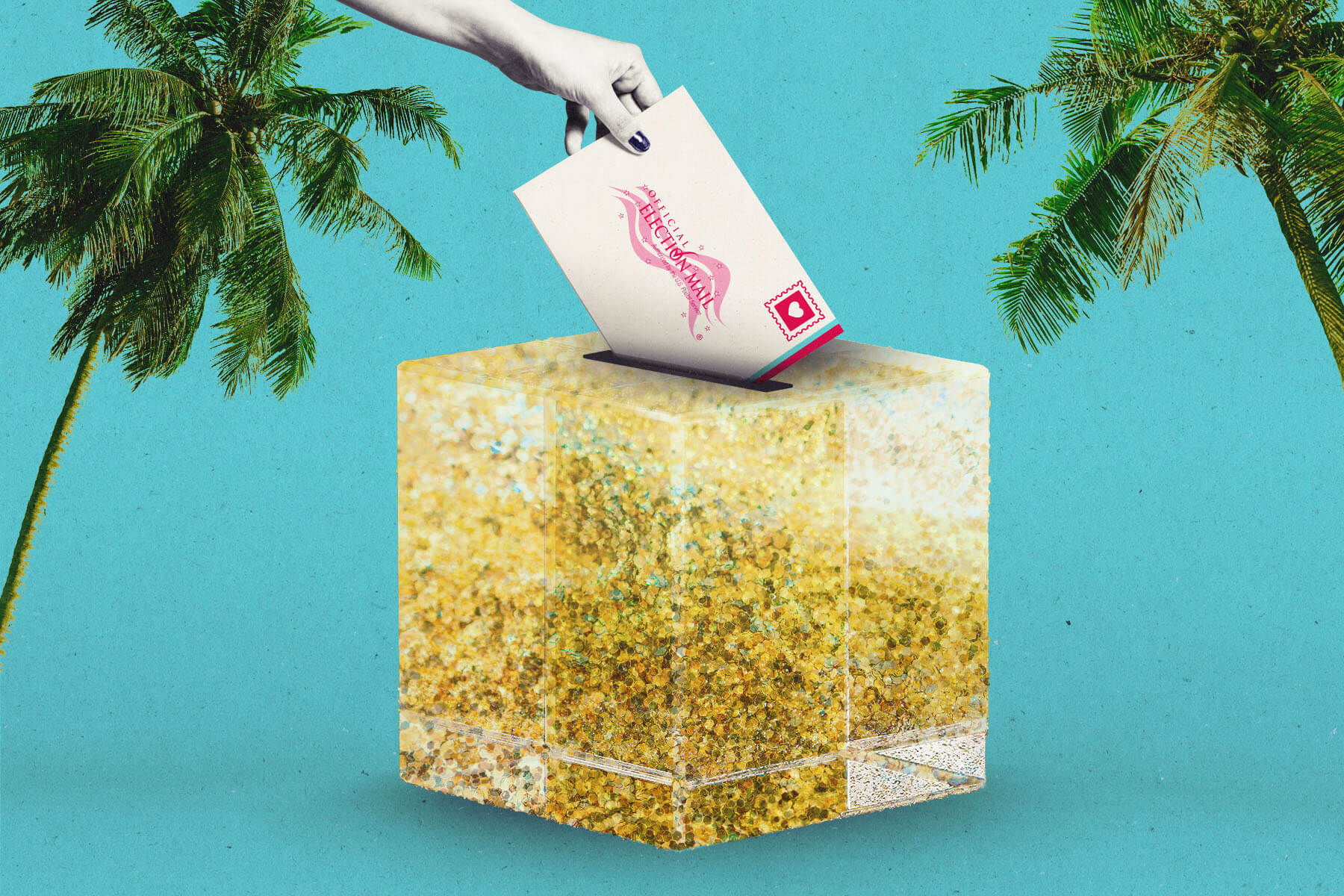“Love Island USA,” the reality show of the summer, has launched thousands of memes and nationwide watch parties that could rival any sports bar in town.
It’s a marathon of 36 episodes streamed over six weeks on Peacock that follows singles looking for love and competing for $100,000. And it keeps viewers glued through participation: They can use an app to vote couples off the island in Fiji, leaving the survivors one step closer to winning hearts, minds and cash.
This season – its seventh – hit record mobile viewership and engagement numbers, according to a release from NBCUniversal. By the end of Tuesday’s 2.5-hour voting window, more than 3.5 million unique users had cast votes, NBCUniversal said.

Obviously “Love Island” voting is not a direct mirror to the world of Democratic politics. But a few of the show’s fans have noted that political campaigns, candidates and public officials could learn lessons from the success of this fanbase.
The 19th spoke with Joy Ngugi, the former director of presidential video production for the White House under Joe Biden, who has been talking about some of the connections between the show and youth political engagement on her TikTok page.
Here are five things the world of politics can learn from “Love Island.”
This conversation has been edited for length and clarity.
1. “Love Island USA” fans are committed and talented — so hire them!
Joy Ngugi: I think that something I’ve really enjoyed watching is the way that people have created these intense coalitions. They are organizing amongst themselves — and then on top of that, they are then taking whatever information that they decide among their individual groups and they are bringing it to the general public by then getting other fan bases on board with them.
I talked about this on TikTok, but I found it so funny how some of these groups are getting K-Pop fans who are not even watching “Love Island” to download the “Love Island” app to vote. They’re getting Swifties involved. They are getting the BeyHive. They’re getting all these other subgroups involved into their larger coalitions. I think that in the world of politics, we need some of that: groups of people who are coalescing and getting other groups of people behind candidates.
They’re people who have been doing explainers online with white boards and pushing their own agendas on why you should support a couple. They’re getting people on board with their ideas, and I think those people should think about becoming strategists in the political space. I think that this energy that I am seeing is easily transferable into real roles.
2. Get creative about meeting people where they are
Ngugi: There are folks who have been getting their family members registered to vote on the “Love Island” app, family members who are not tracking, they’re not watching, they don’t know what’s going on. They’re not even reading anything on Twitter — nowhere. And yet, they’re registered to vote, but it’s because their family members, the “Love Island” watchers, are finding them and getting them involved.
There’s a playbook of how we build campaigns, how we build coalitions, how we even get endorsements from different groups of people, how we fundraise. I think we should still do the general stuff: We do the churches, we do the unions, we do nurses, we get teachers and suburban working moms. We get all of those people on board, of course, because they’re an important part of the coalitions. And, I also think that we should be more niche.
I think that there’s a lot to say about how the Trump administration has gotten a lot of fitness bros in their camp. The podcast space is also a place that is dominated, I think, by people who voted for Donald Trump. And that’s not to say that Democrats, for example, cannot get those groups of people. But they’re not there. They’re not in enough of those spaces.
-
Read Next:
3. Build a campaign around what is possible (See: Nicolandria)
Ngugi: [Watching “Love Island USA”] I am on the Nicolandria ship. I studied film. I love a good story arc, and the two of them have provided us with, potentially, friends-to-lovers. They provided us with this almost romance novel-type potential. And that is a ship built on — partially — delusion, but it also didn’t come from nowhere.
People saw some things in episode 1 and ran with it, so it is built on excitement and possibilities. We don’t actually know what these people are going to do. They are real people, and they’re able to make their own decisions. But it’s about what is possible, and so people want to get behind that.
I think some of the political campaigns that I’ve enjoyed watching are ones that are kind of built on enthusiasm, excitement and also delusion. Campaigns can learn a little bit about how to build enthusiasm, excitement and positivity by leaning toward what is possible, and less of this fear mongering. I think that leaning in on what could be is also really exciting.
4. Learn from Amaya: Authenticity matters
Ngugi: Enthusiasm only works when you have already addressed the elephant in the room, which is showing people how you are willing to show up for them. People really are scared. People don’t know how they’re going to pay for their rent. People are worried that their family members are going to be deported. They don’t know what the country is going to look like in a few years. I think talking about that, addressing that first — and also bringing forth what you’re going to do, is really important.
Going back to “Love Island,” people want to back up these couples. They find couples on the show that they honestly really like, and people on the show that they honestly really enjoy. They like Amaya because they feel that she is authentic, and then they are telling people who are not watching the show: “Vote for Amaya.” “Come into our coalition.” It’s easier to campaign for someone you believe in and you’re excited about, so I think a message to people who are thinking about running for office is really thinking about their platform and what they’re actually doing for people, and then you could build on excitement.
-
Read Next:
5. Politicians can lean into pop culture — but don’t overdo it
Ngugi: Respectfully, I do not want politicians to see this as a sign that they should do the latest TikTok trends. I think that there’s a way for politicians to engage from a distance, but I think engaging directly is seen as cringe in a lot of ways.
I think a great way for these political people to engage is speaking directly with some of these, again, niche audiences. Like Zohran Mamdani, he did a video where, I think, he went to a halal food truck, and was directly speaking with the people in the truck while he was talking about a real issue that they cared about. I think it’s things like that.
But again, it’s not about doing a TikTok dance video. Like famously in the 2016 cycle, when we saw Paul Ryan do the dab, I think that single handedly ended [his presidential campaign]. So we don’t want to see that.
Feeling overwhelmed by the news? The 19th is considering new ways to keep you informed. But we need your input. Fill out this quick survey to share your thoughts.







